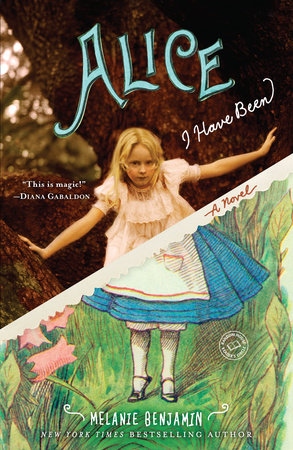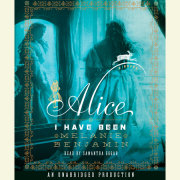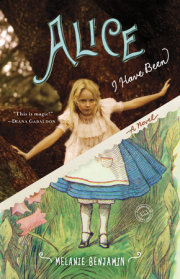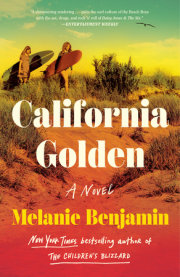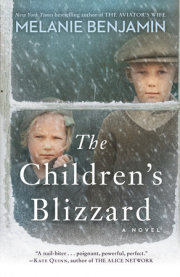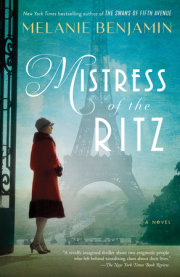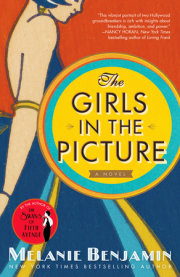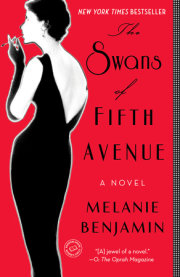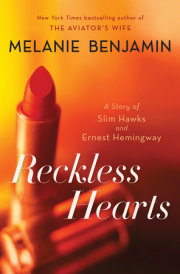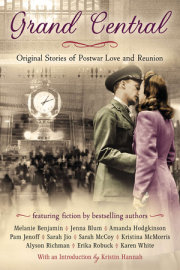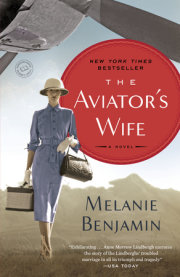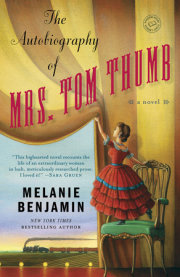Chapter TwelveYou look lovely—that rose tulle over the tarlatan is perfection! Oh, I do wish I was going!” Covering her face with her handkerchief, Edith coughed fitfully and then fell back against her pillows, her hair a tangled mess of curls. Her face was nearly as red as her hair.
“Yes, you’d be a perfect vision, with all that coughing! I know it’s unfair, and Aubrey will be vexed, but you know what Dr. Acland said. You’re to stay in bed for a week, at least.”
“It’s so unlucky! And for once I thought I’d be the belle of the ball instead of you! Papa was going to announce the engagement tonight.” Edith smiled weakly, and turned her head to sigh over the beautiful blue taffeta gown hanging in the cupboard.
“I’m never the belle of the ball when you’re present, so I relish the chance tonight. May I borrow your diamond star clip for my hair?”
“Yes, of course—it’ll look wonderful with your diamond earrings!”
I smiled my thanks and rummaged around in her jewel case until I found the clip; dancing over to the looking glass above the mantel, I pinned it in my hair, just above my left ear. “Is this right, do you think?” I turned.
“It’s perfect. Oh dear!” And Edith was off on another coughing fit again.
“Poor darling! I’ll ring for the nurse—Dr. Acland said we weren’t to get too close, in case it’s measles. I do wish I could give you a kiss, though, before I fly. I’m rather excited for tonight—silly, but I am! How many Commemoration Balls have I attended? ”
“None like tonight,” Edith managed to choke out, between coughs. Finally they subsided, and she fell back against her pillows once more. “Do you think the Prince will propose, then?”
“I really don’t know, but perhaps he—might.” I was too superstitious to say more, even if I could not stop myself from smiling in anticipation. We had made so many plans in these last few days, as his time at Oxford drew to an end; some were quite unattainable (I doubted, for instance, that the Queen would countenance Leo’s idea of moving to America in order to organize the recently emancipated slaves into helping the British recapture the colonies), but others more down to earth. I knew he had also spoken to Papa. Yet there remained the matter of obtaining the Queen’s permission, and I had not been able to ask if he had written her.
Still, I sensed it, my future; it was close, so close I could wrap my arms around it; wrap my arms around
him. Perhaps, tonight, he would simply waltz me out of Oxford, right under everyone’s noses.
Giggling, I began to waltz around Edith’s room, holding my skirts up, showing off my new silk dancing slippers. Edith giggled, too—as best she could—but when she began to cough again, I stopped.
“Oh, I’m making you much worse! I’ll finish my toilette in my own room. You rest now, darling, and I’ll save you a program
and tell you all the gossip in the morning.”
“Oh, I do wish I could go!” She couldn’t help but shed a tear, even as she beamed at me from the depths of her pillows, looking like a dyspeptic angel in her white nightgown. “Keep Aubrey company! And I can’t wait to congratulate you in the morning!”
“Good night!” I blew her a kiss, then hurried out of her room, shutting the door softly behind me. Downstairs, outside the front door, I could hear Bultitude stomping his feet and grumbling; the carriage must have arrived. Where on earth was Sophie? She was supposed to have brought down my gloves and wrap ten minutes ago. I headed back to my room to retrieve them myself; I did hope she had remembered to dress in her good black silk, and pack her needle and thread in case I needed repairs later.
“Alice!” Mamma was gliding down the hall, handsome in her new ruby red silk gown, the bustle a cascade of white satin ruffles dotted with black velvet bows.
“Yes, Mamma?”
“I need to talk with you before we leave.”
“About what, Mamma?”
“This business with Prince Leopold. Your father spoke to me about it this evening.”
“He did?” Perhaps Leo had heard from the Queen, then? I couldn’t hide my hope; I couldn’t, wouldn’t, stop myself from beaming, even as I blinked away a surprising tear of joy. Mamma, however, pretended not to notice, as she merely sniffed before continuing. “Yes. He’s a fool, your father. He’s blinded by his affection for the Prince. But he does not view the situation with clear eyes.”
“I see.” My eyes were dry now. I met my mother’s gaze directly.
“And you do?”
“Yes, I do. Despite what you believe, I do.”
“What I believe? I’ll tell you—I believe that you cannot view the situation with anything but jaded eyes, Mamma. I believe that you cannot look at me without seeing—without seeing what you want to see, which is that I’m not good enough for a prince. Confess it, Mamma. Confess that you think that Leo is too good for me.” My voice was rising, the back of my neck was bristling, just like an animal engaged in mortal combat, but I did not care. Finally, I would make my mother look at me, talk to me, treat me as an equal—even if it was by challenging her to speak a truth I did not want to hear.
Her dark eyes glittered, even as her eyebrows shot up in their triangular way, and I think she admired me, in spite of herself; she knew so few true adversaries. Still, she shook her head dismissively. “I know the world in a way which you do not. I know the Queen. I know there might—there will be inquiries. But instead of accusing me of thinking less of you, have you ever thought that I might be protecting you? Protecting your heart from getting hurt? I once thought you the most practical of my daughters, Alice, but now I wonder. You seem so desperate lately. So reckless.”
Why was it, whenever I tried to shape my own destiny, I was considered to be acting recklessly? Was that the fate of the unmarried woman? I had to believe it was so. “Well, then, I
am desperate! And if that makes me reckless, so be it! I’m desperately in love, I’m desperate to get away from here—I’m twenty-four, Mamma! Twenty-four! I should be married, I should have a home of my own, but I’ve been kept out of sight, put up on a shelf. And Leo found me there, and rescued me! I know something
about the world, too—give me some credit, at least. I’ve taken measures to protect myself.” I thought of Mr. Ruskin, that last horrible day in his drawing room, and I shuddered.
“Alice.” My mother’s face softened; her eyes shone with what I could almost believe was understanding. I remembered that long-ago winter before Albert came, when she had asked for me, and only me, to keep her company; I had seen that same expression in her eyes then. Although never since. “Alice, I do wish for you to be happy. I wish for you to have your own family, your own home like Ina, like Edith will soon. I merely wish that you and Leopold—tell me this, Alice. Do you truly think
he’ll keep quiet? Do you truly think he ’ll stand by and not say a word, while you plan to marry another man, particularly a prince?” Her mouth twisted up, as if she couldn’t bear to even think of him, and I knew she was referring to Mr. Dodgson now.
“I think he’ll want me to be happy,” I answered defiantly, speaking what was in my heart, for it was what I truly wished for him. “You do?” Mamma raised an eyebrow. “Then you’re a bigger fool than I took you for.”
The words stung, like a slap across my face—had she called me ugly, I wouldn’t have minded, but I realized I had long set a great store in the fact that Mamma thought me sensible—but I would not let her see my pain. “I’ll join you in the carriage in a moment, Mamma. I must find Sophie first.” Without meeting her gaze, I brushed past her and headed to my room.
Before I reached the door, I heard her say, once, “Alice.” It was not a command; it was more like a prayer. A mother’s prayer? I wondered. I could not know, for I had never once heard my mother ask God for anything. I ignored her and entered my room, shutting the door behind me.
I found Sophie sitting like an obedient child at my dressing table; I told her to hand me my wrap and gloves, and to try, for pity’s sake, not to crush my nosegay on the drive to the ball. Then I ran to the mirror for one more look—had I ever stared at myself more than I had this evening? Holding my reflection in my gaze, I forced myself to shake off the effects of Mamma’s words; I slowed my breathing down, felt my cheeks lose some of their heat, blinked my eyes so the tears would not fall. I tried to recapture the giddy joy I had felt in Edith’s room; but I knew I would not recover it except in Leo’s arms.
Suddenly I could wait for him no longer; I ran from the room, Sophie struggling behind, and flew down the stairs, scarcely bothering to wrap my shoulders in my cloak. Joining Rhoda, Aubrey Harcourt—looking very pale and morose without Edith—and my parents in the carriage, I leaned forward as we rumbled away, as if I could will the horses to fly. Mercifully, the journey was short. In no time we drew up to the entrance of the new Corn Exchange behind the Town Hall, where the Oxford Commemoration Ball of 1876 was being held.
I had to fight off the urge—truly, it pulsed through me like a fever—to run out of the carriage, calling Leo’s name. Instead, I demurely walked down the steps, the folds of my dress gathered in my clenched hands, and followed my parents into the building, waiting to be announced, one more time, as “Miss Alice Liddell, daughter of the Dean and Mrs. Liddell.” “your royal highness, I believe many young ladies are staring at you, hoping against hope that you will sign their program for even one turn about the floor.”
“Are they? I have no idea, for I cannot look at anyone but
you.”
“You will tire of that someday, you know,” I teased, not believing my own words. “You will look back upon the days when you could have danced with any number of young ladies with longing, and possibly regret.”
“I believe you’re talking of yourself, after all! Now, ’fess up, Alice: You want to dance with one of those hopping young undergraduates— see that pack of them, over in the corner, the ones who look as if they’ve borrowed their fathers’ waistcoats?— instead of poor me. You’re the one who fears regrets, not I!”
“Oh dear, you’ve found me out! I can’t hide anything from you!”
Laughing, Leo spun me about—not quite in step with the orchestra—until I grew dizzy, but I didn’t mind. Looking up into his smiling face—finally he was filling out, so that his cheekbones weren’t so prominent—I surrendered myself to his sure, confident embrace as he guided me across the crowded dance floor. It was such a relief to have him steer me about so; tonight, I didn’t want to think, I didn’t want to worry. I wanted only to laugh, and smile, and dance, and, yes—perhaps even flirt. But most of all, I wanted to love, and be loved.
And in his arms, feeling the burning imprint of his hand upon my waist even through the hard shell of my corset, I found not only the joy I had sought earlier but the realization, without a doubt, that I was.
The Corn Exchange—normally a huge, drafty place with soaring ceilings, broad exposed beams, sawdust-covered wood floors— had been transformed. Tonight the floors had been scrubbed and polished to a sheen with beeswax; the cavernous walls were hung with velvet maroon drapes, great gilded brackets holding dripping candelabras, and bouquets of flowers tucked into swaths of lace and cord. A very welcome addition was an enormous stack of ice blocks near the back, which did help cool the room from the heat of the candles and the warmth of the dancers.
While my gown was, naturally, one of the most elegant, there was no shortage of finery on display. The young ladies wore gowns of the lightest material—whispery muslin, delicate lace, rustling tarlatan, gauzy tulle—in colors of the gayest spring, bustles lower this season, more trailing than bunched; the men were elegantly slim in their close-fitting black trousers, skimming dress coats to match, showing broad expanses of white shirtfront studded with diamonds or gold. Naturally, everyone wore white kid gloves.
The ballroom was a feast for the senses: a rainbow of colors swirling, merging, parting; the beguiling music of the orchestra, the low, mellow instruments keeping time while the melody swirled about courtesy of the violins; the honey-sweet aroma of burning beeswax combined with the hothouse fragrance of a thousand flowers all mixed together. And hovering above it all was the rise and fall of ballroom conversation; teasing, taunting, laughing, occasional serious undertones of earnest lovemaking. “I do love balls.” I sighed, content to be simply one fair maiden among many tonight.
“That is the least profound idea I have ever heard come from your delectable mouth, and I love you for it.” Leo laughed indulgently, even paternally—and I allowed him to do so with a bashful, very maidenlike smile.
“Am I too serious for you at times? Would you prefer it if I only chatted about gloves and bows and parasols instead of
books and art and ideas?”
“Not at all! I’ve spent far too much time in the company of such perfect ladies—”
“So I’m not a perfect lady?” Arching my back, I pulled slightly away, feigning outrage with a pout.
“No, no—oh dear!” He began to laugh, helplessly, his slim shoulders shaking with mirth. “This is one of those conversations which I will never survive. Suffice it to say you’re perfect in every way, and I don’t want you to change one whit. There—am I forgiven?”
“I suppose so.” I tried very hard not to smile, but I couldn’t help it. He looked so appealingly confused, like a small boy; still, when he gazed at me with that sparkle in his eye, I knew I was his equal in every way, and that he admired me for it.
The music came to an end with a violin flourish; the dancers applauded, and Leo bowed while I curtsied. Somehow we had ended up in the center of the ballroom, all eyes upon us, and I decided that, after all, I did not want to be one among many. I wanted to be the sole prize upon the arm of Prince Leopold, admired, studied, envied. Holding my chin high and proud, feeling my cheeks blaze, knowing my eyes sparkled, I rejoiced that I was the talk of the ball. I had known notoriety, of course, but this was different; this was intoxicating, and I’m afraid I rather encouraged it by laughing just a little louder than usual, touching Leo’s arm, as he led me off the dance floor, just a little more often than necessary. Tonight, I did not care who saw me.
“Alice, my dear Alice! Let me look at you!”
Suppressing a small sigh, I turned around to face my elder sister, just arrived from Scotland. She was attired in a silver blue taffeta gown, with rows of tiny pink silk rosebuds sewn vertically up the front of the bodice in an artistic attempt to draw the eye upward, not out, although there was no way to obscure the obvious; Ina had grown stout. There was no other word for it; my sister had grown stout and matronly after the arrival of her first child.
Her husband, William Skene, was a tall, thin man, kindly, with an air of endless patience. I was fond of my scholarly brother-in-law. He was a man very much like Papa—living in his head most of the time, although he had a certain hard practicality about him, too. My sister was a woman quite like my mother. They were a perfect match; dreamlike men always benefitted from energetic women.
“You look wonderful, darling.” I embraced my sister. “What a lovely frock! Wherever did you find that silvery shade of gray? It almost matches your eyes!”
“London, of course; we can find nothing up in Edinburgh. I told William I simply
had to dart down to London before the ball.”
“I’m sure you did,” I said with a quick smile, remembering many, many times when Ina had bossed me about in the same way. “It was worth it; the dress is beautiful.”
“Mrs. Skene, it’s a pleasure.” Leo bowed to her, taking Ina’s plump hand, lifting it to his lips. She blushed, curtsied, and began to fan herself furiously, one of her teasing smiles upon her lips, although the effect wasn’t quite the same as it had been when she was fourteen.
“Your Royal Highness, how lovely it is to see you again. I’m very happy to observe that you’ve recovered fully from your illness.”
“Thank you. Of course, I had a great incentive to do so.”
Smiling, Leo took possession of my left hand, tucking it under his arm. Ina’s eyebrows shot up, her mouth pursed, and I saw her
exchange a look with Mamma, who was standing in the doorway to the small anteroom that had been furnished for the Prince ’s private party.
Catching Ina’s look, Mamma came rushing forward, practically dragging Rhoda by the arm. “Sir,” Mamma said with a worried smile. “I do hope you won’t mind dancing with dear Rhoda—she has an unexpected opening on her dance card, and she was so hoping for a polka.”
“I’m afraid I’m rather booked,” Leo said, glancing at my dance card, dangling from my wrist.
“But surely Alice won’t mind sitting this out, in order to give her sister the pleasure of just one dance?” Mamma continued to smile, more ferociously than before; she looked at me, her eyebrows nearly to her hairline. I felt the blood simmer in my veins, but I would not give way to my anger at her meddling. “Of course,” I said, through gritted teeth. “I don’t mind in the least. Do go on.”
Poor Rhoda—who obviously was not pleased to be used in such a way, as she had remained scowling at the floor through the entire exchange—curtsied as Leo bowed, then they repaired to the dance floor just as the orchestra started back up.
“That was very subtle, Mamma,” I said, turning to meet her disapproving gaze. “What’s next? Are you going to throw Ina at him, to keep us apart?”
“Alice, of course I can’t dance,” Ina huffed—even as she looked longingly at the dancers swirling about to the music. “I’m married now.”
“I was being sarcastic, Ina.”
“Alice, I’m merely acting in the Prince’s best interest,” Mamma replied smoothly. “It is unchivalrous of him to dance so often with just one partner. We wouldn’t want word of his poor manners to get back to the Queen.”
“Even if Leo danced by himself in the middle of the floor, no one could accuse him of poor manners. The truth is, I don’t believe you would mind at all if that sole partner wasn’t me.”
Mamma did not answer; she simply made a grand, sweeping turn and rejoined Papa and all their friends greedily partaking of Leo’s hospitality, as his private room was furnished with superior refreshments.
“Don’t vex Mamma so, Alice,” Ina murmured, patting the perfectly round sausagelike curls tickling the back of her neck— their chestnut brown not
quite matching the rest of her hair, although I refrained from pointing this out. “You’re awfully impertinent these days.”
“I? Impertinent?” I looked at my sister, my deceptively placid paragon of a sister. Her gray eyes returned my gaze unblinkingly. “I daresay the Prince ’s attentions have gone to your head, Alice.”
“I wonder that there is only one person in this family who wants to see me happy. Dear Edith, I do wish she were here tonight!”
“So do I,” said an unwelcome voice at my elbow; suddenly the cloying scent of cheap perfume filled my nostrils. Turning reluctantly—my limbs suddenly blanketed with dread—I came face-to-face with Mr. Ruskin.
I had not seen him since that nightmarish last afternoon. Observing the way his eyes glittered dangerously beneath his white, thundering brows, I knew he was remembering that day, too. While, to my great relief, he looked as usual—his clothes were neat, his abundant whiskers freshly groomed—I still feared for his reason. What name would he call me tonight? I had never
known him to attend a ball before, as he declared them a ridiculous waste of money and time; what had brought him to this one?
“Mr. Ruskin.” Ina curtsied.
“My dear Ina. Now, if only Edith were here, I could behold the lovely Liddell girls all over again. Ina, Alice, Edith—such pearls you are, still.”
Ina—hardly a pearl; more like an oyster—simpered and blushed. I could not find it within me to flirt and carry on, as I once would have done; I had too much to fear of him. Too much to lose.
“Alice, my dear, you are simply a vision.” He glanced at me, up and down—and I felt naked, vulnerable beneath his cold, boldly needful gaze.
“Thank you.” Despite the heat of the room, I shivered.
“You and the Prince make such a lovely pair.”
“We do?”
“Yes—you’re like a flower on his arm. A lovely flower.” I could not reply; my heart was beating too rapidly against my tight stays.
“A rose, I would say.” He leaned toward me, so that his breath was tickling my neck. “You look like a beautiful—
rose.” He whispered this last; placing his hand upon my arm, he stroked it, up and down, lightly, as if I were a blossom, opening to his touch.
“I—that is, I must—Prince Leopold!” For he was suddenly beside me, having led a flushed Rhoda off the dance floor; I hadn’t even noticed the music had stopped.
Laughing, gasping, I reached for his gloved hand; he took mine, pulling me to him, and I felt safe once more.
“Mr. Ruskin!” Leo shook his hand with apparent delight, surprising familiarity.
“Sir.” Ruskin bowed.
“I must tell you, once again, how grateful I am for your— assistance in that matter.” Leo’s smile was wide and genuine; his eyes danced with the delight of a happy secret as he looked at me, then back at Mr. Ruskin.
“It is my pleasure. I am only too happy to provide what little help I can. I only wish it is of value to you, after all.”
“I have great hopes that it will be. Great hopes.”
“What secrets are you two keeping from me?” I tried to make my voice light, my face untroubled, but I could not ignore the heavy stone of dread settling in the pit of my stomach. I did not enjoy knowing that both Leo and I were engaged in some sort of secret dealings with John Ruskin, of all people.
“Ah, but that is not for you to know just yet!” Leo reached down and studied the dance card dangling, by a slim gold thread, from my wrist. “Hmmm. I wonder, who is this ‘Prince Leopold’ fellow?” And before I could say anything more to Mr. Ruskin, Leo had swept me up and back out on the dance floor with so much speed—he was turning me about in such tight circles I was dizzy—I could scarcely catch my breath.
“Leo! What on earth? The orchestra has barely started!”
“I could wait to have you in my arms no longer, I’m afraid!” His face was red, his eyes blazing with suppressed emotion; all I could do was follow him, allow him to propel me across the dance floor—bumping into other couples, stepping on trains, not even stopping to apologize—until somehow, we were all the way to the opposite side, and he was leading me through a small door.
He finally stopped then, and I could catch my breath for a
moment and try to put myself back together; my dress was crumpled, and I knew the lace on my bustle must be in tatters. Finding ourselves suddenly alone, the music muffled on the other side of the door, Leo and I simply looked at each other and laughed. It was as if we shared a secret or had gotten away with some amazing deception, like two naughty children.
“Alone at last, my darling!”
“Leo, you take my breath away!”
Without warning, he swooped down and kissed me on the lips, grabbed my hand, and started pulling me down a passage. I had held Leo’s hand many times; I had felt his arm about me, looked into his eyes. But never before had I been so aware of his confidence, his sureness, his boldness. For I felt something different in the way he touched me, shepherding me down the hall past servants who flattened themselves against the walls as we hurried by; I felt the possession of a lover—perhaps a husband?—and my heart thrilled, every nerve strained and tensed, for I longed to submit, to be possessed.
“Sir, I do not jest—you leave me, quite literally, breathless!” I laughed, but I was serious, for he was walking so very fast I could hardly keep up, despite the firm grip he had on my hand. “I’m sorry, my dear!” He slowed, turning to smile at me— he was so eager, his smile seemed to take over his entire face. “I quite forgot that ladies’ clothing is so devilishly—well, so devilishly
constraining. Although I do think you look lovely tonight—have I told you?”
“Several times. But I’ll never tire of hearing it.”
“Be careful what you wish for!” With another smile— another twinkle of his blue eyes—he turned down a different passage; it was unlit, narrow, the floor uneven, and I could not see my hand before me. All I could do was trust in Leo to guide me, and I was glad to do so.
“Watch your step!” I heard the creak of a door, then stubbed my toe up against a small stair. Following him blindly, I stepped up, then out—into the night. Blinking at the relative brightness— the moon was not quite full, yet it shone purposefully down upon us—I found that we were in the large open-air market behind the Council Hall. It was empty tonight, of course, although the ground was still scattered with straw, and there were a few permanent wooden stalls as well as several benches. Leo led me to one, and laughed as I sank down upon it, finally able to catch my breath.
“I’m sorry, truly, but I was so eager, you know, to have you entirely to myself!”
“Sir, I am most gratified, but do we dare it? We ’re quite unchaperoned!” I smiled up at him; he was no longer laughing. The solemn look in his eyes chased away my own smile; I studied him with the same gravity, for I knew I would want to remember this moment for the rest of my life.
“Alice.” He knelt beside me; I wondered, oddly, if he would dirty the knees of his trousers. “Dearest Alice, please give me your hand.”
Trembling, I did as he asked.
“Darling, I had the most amazing communication this evening from Mamma. She sends her best wishes, naturally.”
“How very kind of her,” I said automatically, wishing he would get to the point while also, strangely, happy to linger in the sweet anticipation of the moment; just to see the love light in his eyes, those hopeful, thoughtful eyes, filled all the aching, empty places of my heart up with a quiet joy.
“Yes, well—she knows, now, how very—fond—I am of you. I’ve taken great care in telling her. I’m afraid I’ve been
rather a boring correspondent, as I’ve had just one single subject. You.”
“Oh, is the Queen very tired of me?”
“I daresay—particularly as I even enlisted others in my cause.”
“You have?”
“Yes—I didn’t want to trust our happiness to my own feeble pen. That was what I was referring to, with Mr. Ruskin. I asked him, as well as Duckworth—your old friends, of course—to write to her, also. She respects them, and she knows their great regard for your father, their long association with your family. I felt that would be the wisest course, don’t you agree?” Did a cloud veil the moon, or was it fear that darkened the night, chilling my bones? Yet I told myself that Leo would not be on his knees beside me if the Queen had not given him reason to hope. What could Mr. Duckworth say, after all? He was a good man. He was also Mr. Dodgson’s closest friend.
But Mr. Dodgson was kind, I had seen it in his eyes; he wanted me to be happy—
may we be happy—
“Oh, Leo!” My heart fluttered, sickeningly, to my feet. And why hadn’t Mr. Ruskin mentioned this to me before? If he intended to aid us, would he not have told me?
“What is it, dear? You look so distressed—is it the cold? Here, do take my coat—I forgot about your wrap.” With a sweet, worried shake of his head—entirely in the manner of one delighted to find himself suddenly responsible for another—he removed his jacket and placed it about my shoulders.
“Thank you,” I said, looking up at him; his hands lingered upon my shoulders as he bent down to kiss me, gently, almost reverently.
But then his lips—his soft, full lips—sought more; he sank down beside me on the bench, wrapped me in his arms, and took my love as insistently as I could give it. I sought, too—pulling away with a little gasp, my limbs limp, only his arms holding me up, I suddenly needed more; I met his lips, tasted his tongue, with a hunger of my own. My arm arched gracefully about his neck— a strange liquid thrill shot through my womb, and I cried out, even as I sought more.
And he was eager to provide it; he leaned into me, pressing down upon my body almost until I could no longer hold myself upright; I sank down, down, down until my back nearly touched the bench.
“I—I—oh, darling!” Suddenly he sprang back, wrenched away, and pushed at my shoulders, his hands trembling. Leo shook his head, as if to clear it; I searched his face, still wanting more; still wanting to possess him, possess him so absolutely that nothing he could hear—not from the Queen, nor Mr. Duckworth, nor Mr. Ruskin—could ever keep us apart.
“Yes, Leo?” Struggling to sit upright, I felt my hair falling down the back of my neck, and I saw Edith’s diamond clip sparkling on the ground near the bench. I studied him anxiously; wanting so very much to please him.
“I’m afraid—that is, we mustn’t do much more of—that, at least not now. Not until—not until later, my dear.” He clenched his hands into fists, holding them tight for a long moment before finally relaxing them and turning back to smile at me. I noticed, however, that he was still breathing heavily.
“Oh! Yes, of course, I quite understand.” I did understand that it was different with men; their passions were more difficult to control.
“Although I must say, dear Alice, you do kiss quite well. Almost as if you’ve been kissed before, many times!” Now he
was teasing me, I knew; his eyes glittered and coaxed, until I was forced to smile, despite my sudden queasiness.
“Well, I have been—you’ve kissed me yourself!”
“Ah, I’m much more accomplished than I’ve been led to believe.” He—very gingerly, as if I might be too warm to touch— placed his hand upon mine and sat quietly for a moment, until his breathing came more regularly.
“Now, then, you’ve quite gotten me off track. I do believe I was speaking very seriously about a matter of great importance to us both.”
“Yes, of course—do go on.” I tried to match the lightness of his tone, even as I fought off a rising bubble of panic. Had I been overeager? Had I scared him away? I had always been confident around Leo, knowing I was his equal in so many ways. Suddenly, I was very unsure of myself. I did not feel on equal footing, not at all; I was so close to my heart’s desire that I was unable to think, to choose, to act, for fear of chasing it away.
“As I said—before I was so spectacularly interrupted—I’ve written Mamma, and she understands where my heart lies. With you, of course, my Alice. And this afternoon, then, I received a letter from her, a most encouraging letter—”
“Alice! Alice!” It was a strange voice calling my name; startled, Leo and I both looked up. Someone was running toward us, across the great expanse of the marketplace.
“What? Who’s there?” We rose, and I tried to make out the approaching figure, sprinting, as if to a fire, calling my name. “Alice—there you are! We ’ve been looking everywhere! Come quickly—we must leave right away!” It was William Skene, his shirt untucked, his coat half off his shoulders; he bent over, hands upon his knees, struggling to catch his breath before he looked at me—I saw, even in the moonlight, that his face was deathly pale.
“What? What is it?”
“Edith. It’s Edith—quick, we must go back to the Deanery. Your parents have already left with Ina and Rhoda—I’m to take you in my carriage.”
“Edith?” I could only repeat her name, for it did not register in my brain. Edith? Edith was home, in bed; I had just waltzed around her room, getting ready for this night. “What about Edith?”
“She’s ill—very, very ill. Dr. Acland has gone, too. Come— we can’t tarry. Prince Leopold, help me!”
I did not understand what he meant, but somehow Leo was pushing me—gently, yet forcibly—toward William, who was hurrying back across the market square. Then I was in front of the Corn Exchange, being lifted into the carriage—I heard my brother-in-law yell to his driver to hurry, there was no time to waste—and somehow I found the presence of mind to lean out of the carriage window and look, one more time, at Leo as the horses pulled away. I realized, too late, that I was still wrapped in his jacket; it smelled like moonlight, like warm breezes, faded jasmine. My own scent, I realized; it had mixed and lingered with his. I smelled myself upon his coat.
Leo was standing at the curb, just under a streetlamp; the light shone down upon him, making his hair a golden halo but obscuring his face so I could not see his eyes. He raised his arm in farewell, opened his mouth as if to speak.
We rounded the street corner before I could hear what he said, but I was sure that it was just one word— Alice.
Copyright © 2010 by Melanie Benjamin. All rights reserved. No part of this excerpt may be reproduced or reprinted without permission in writing from the publisher.

